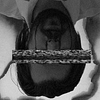Take a photo of a barcode or cover
challenging
informative
reflective
slow-paced
informative
reflective
slow-paced
hopeful
informative
reflective
slow-paced
informative
reflective
medium-paced
Enjoyed the ideas about prioritizing context, ecology, grounding yourself in your physical community, and reverting your attention away from sites that instantly commodify it. O'Dell lost me in some of the lengthy descriptions of art pieces, but I saw what she was getting at. The book didn't really have a thesis statement, and the title is somewhat misleading, but I think that those who cite this as the reason they disliked the book are missing the point of her meandering, non-concise explanation. Jenny O'Dell's book is similar to many of the works/pieces she cites. She is asking us to look at what we want from novels (bullet point-able roadmaps from point A to point B in a way that we can immediately internalize and apply) from a new perspective in a meta sort of way.
Pretty good until it isn't!
The first third of this book is a fantastic meditation on the cost of our perennially-sapped away Attention and desire. It seamlessly connects the cost of attention to social issues, personal happiness, and fulfillment. It's great. An unflinchingly altruistic view of what could be, supplementing in tangible life experiences and voices from the past, the case being built in this novel is a humanist joy.
It should have ended around page 150 though.
The latter half of the novel just drags. Odell recycles the same points with different coverings, and you end up just slogging through what feels like someone trying to stunt on you with their prose and research without adding much of anything to the conversation. No joke, it took me ten days to slug my way through the final 100 pages. It's that dry.
Still though, the beginning premise and enjoyable setup make it well worth the cost of picking up this book, it's bold-faced stare into the unseen costs of unfettered capitalism is both refreshing and painful, not too unlike cleaning a wound.
My favorite quote:
The first third of this book is a fantastic meditation on the cost of our perennially-sapped away Attention and desire. It seamlessly connects the cost of attention to social issues, personal happiness, and fulfillment. It's great. An unflinchingly altruistic view of what could be, supplementing in tangible life experiences and voices from the past, the case being built in this novel is a humanist joy.
It should have ended around page 150 though.
The latter half of the novel just drags. Odell recycles the same points with different coverings, and you end up just slogging through what feels like someone trying to stunt on you with their prose and research without adding much of anything to the conversation. No joke, it took me ten days to slug my way through the final 100 pages. It's that dry.
Still though, the beginning premise and enjoyable setup make it well worth the cost of picking up this book, it's bold-faced stare into the unseen costs of unfettered capitalism is both refreshing and painful, not too unlike cleaning a wound.
My favorite quote:
"The natural tendency of attention when left to itself is to wander to ever new things; and so soon as the interest of its object is over, so soon as nothing new is to be noticed there, it passes, in spite of our will, to something else. If we wish to keep it upon one and the same object, we must seek constantly to find out something new about the latter, especially if other powerful impressions are attracting us away."
reflective
medium-paced
If the concept of the relationship with your personal attention span and capitalism is new to you, HIGHLY recommend this read. If it’s something you’re well familiar with - there isn’t much ‘help’ or call to action here with the conversation, which is what I was hoping for. She had some amazing sourcing but I wish she spent more time exploring the conversation outside of constant sourcing.
reflective
slow-paced





